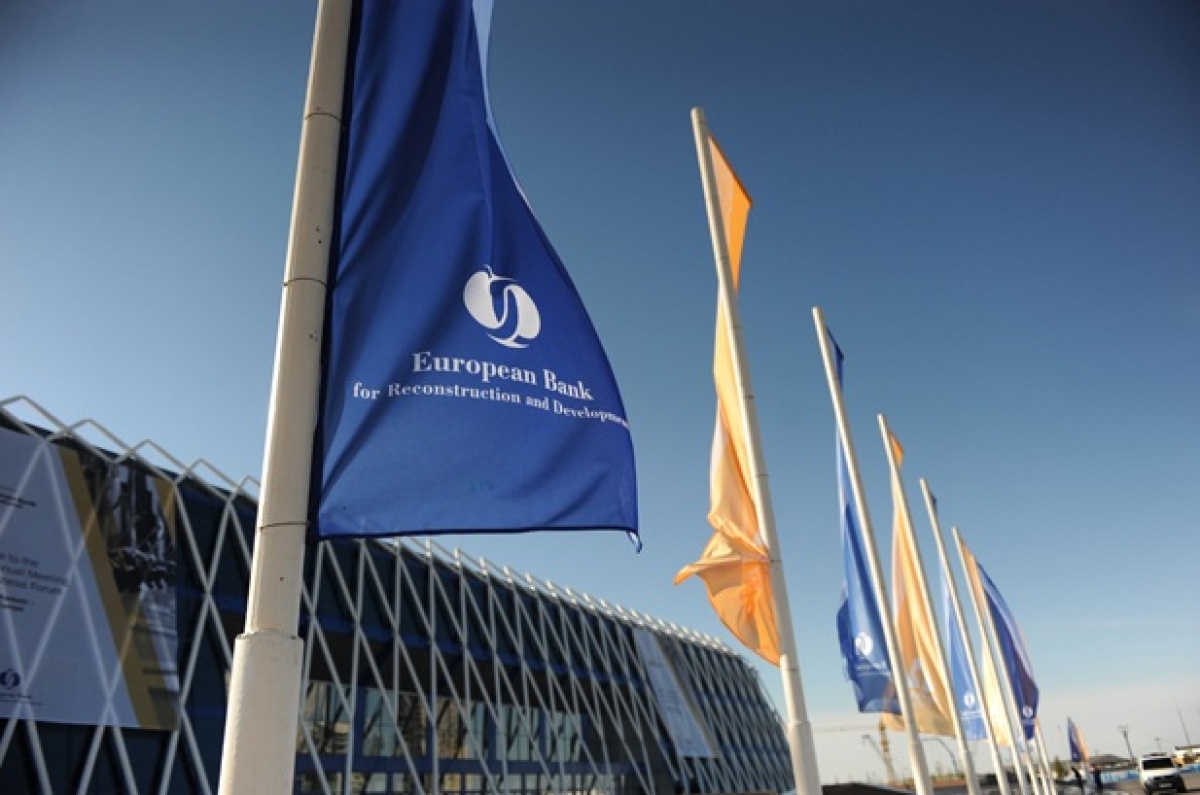Kom Ombo, Egypt’s Leading Renewable Energy Firm Gets $ 114 million Financing
The European Bank for Reconstruction and Development (EBRD), the OPEC Fund for International Development (the OPEC Fund), the African Development Bank (AfDB), the Green Climate Fund (GCF) and Arab Bank today signed a US$ 114 million financing package with ACWA Power for the construction of the largest private solar plant in Egypt.

The development of the Kom Ombo solar plant will add 200 MW of energy capacity, increasing the share of renewable energy in Egypt’s energy mix and further promoting private-sector participation in the Egyptian power sector.
Read also:South African Fintech Startup, Payflex, Secures New Funding Round
The package comprises loans of up to US$ 36 million from the EBRD, US$ 18 million from the OPEC Fund, US$ 17.8 million from the AfDB, US$ 23.8 million from the GCF and US$ 18 million from Arab Bank. This is in addition to equity bridge loans of up to US$ 14 million from EBRD and US$ 33.5 million from Arab Petroleum Investments Corporation (APICORP).
The new Kom Ombo plant will be located less than 20 km from Africa’s biggest solar park, the 1.8 GW Benban complex. Once operational, the new utility-scale plant will serve 130,000 households.
ACWA Power submitted the lowest tariff in what was the first solar photovoltaic (PV) tender in Egypt. The provision of solar energy through a public tendering process aims to achieve a competitive tariff and promote the growth of solar energy as an affordable alternative to conventional energy sources.
Read also:The Five Institutional Funds Invested in Bitcoin by Late 2020
Private-sector participation in the Kom Ombo project is the result of successful policy dialogue with the Ministry of Electricity and Renewable Energy and the Egyptian Electricity Transmission Company (EETC), as well as a US$ 3.6 million technical assistance programme, co-funded by the EBRD and the GCF, to support the EETC in administering competitive renewable energy tenders. In addition, the project has also benefitted from broader energy-sector reforms supported by the AfDB in recent years to scale up the involvement of the private sector.
EBRD President Odile Renaud Basso said: “We are very happy to team up again with ACWA Power in Egypt, after our successful partnership in Benban, to promote renewable energy in Egypt. Increasing the production of clean energy is an important step to reducing carbon emissions and addressing climate change. This is in line with the EBRD’s strategy to become a majority green bank by 2025. This project also marks the EBRD’s first co-financing project with the AfDB and the OPEC Fund in Egypt and we look forward to future joint investment opportunities for our institutions across Africa.”
OPEC Fund Director-General Abdulhamid Alkhalifa said: “We are pleased to contribute to Egypt’s efforts and strategy to expand its generation capacity in the renewable energy space. We have been at the forefront of advocating for access to affordable clean energy for many years. Kom Ombo will be our third project with ACWA Power and it exemplifies great cooperation between government, development finance and private-sector actors.”
Read also:Nutanix Appoints New Senior Director of Multicloud Business Development
“The Kom Ombo solar project is a truly remarkable transaction. It not only clearly demonstrates the indisputable competitiveness of solar PV vis-à-vis conventional sources of generation, but it also contributes directly to the realisation of Egypt’s ambitious renewable energy targets, in addition to being an excellent example of what stakeholders driven by a shared objective can achieve,” said AfDB Vice President of Power, Energy, Climate Change and Green Growth Kevin Kariuki.
Paddy Padmanathan, President and Chief Executive Officer of ACWA Power, said: “ACWA Power is privileged and proud to lead the realisation of the Kom Ombo PV project. The financing package signed today brings us closer to not only the people and the government of Egypt, but also to our finance partners, the EBRD, AfDB, the OPEC Fund, the GCF, Arab Bank, and APICORP reflecting our shared objective of supporting the energy transition to address the threat of climate change. Kom Ombo PV is the fourth project in ACWA Power’s Egyptian portfolio and the conclusion of this financing demonstrates the confidence in the Egyptian government’s ambitious renewable energy plans, being implemented through private-sector participation.”
Yannick Glemarec, Executive Director of the Green Climate Fund, said: “The GCF is proud to support implementation of Egypt’s ambitious renewable energy financing framework. US$ 154.7 million in GCF resources, including US$ 23.8 million for the Kom Ombo plant, catalyses over US$ 850 million in co-financing and unleashes the first wave of private renewable energy projects in Egypt. The GCF looks forward to continuing to support the government of Egypt in delivering on its ambitious climate targets through innovative partnerships with the private sector.”
Nemeh Sabbagh, CEO of Arab Bank, said: “We are proud to capitalize on our long experience in this sector and partner again with EBRD to provide debt financing and related banking services to another renewable energy project in Egypt for our client ACWA. Green financing is one of our strategic focus areas and Egypt is a core market for Arab Bank Group, where we have been operating since 1944”.
The Kom Ombo plant will contribute to the Egyptian government’s target to generate 42 per cent of the country’s electricity from renewable energy sources by 2035 while delivering one of the lowest generation tariffs on the continent.
Kelechi Deca

Kelechi Deca has over two decades of media experience, he has traveled to over 77 countries reporting on multilateral development institutions, international business, trade, travels, culture, and diplomacy. He is also a petrol head with in-depth knowledge of automobiles and the auto industry






